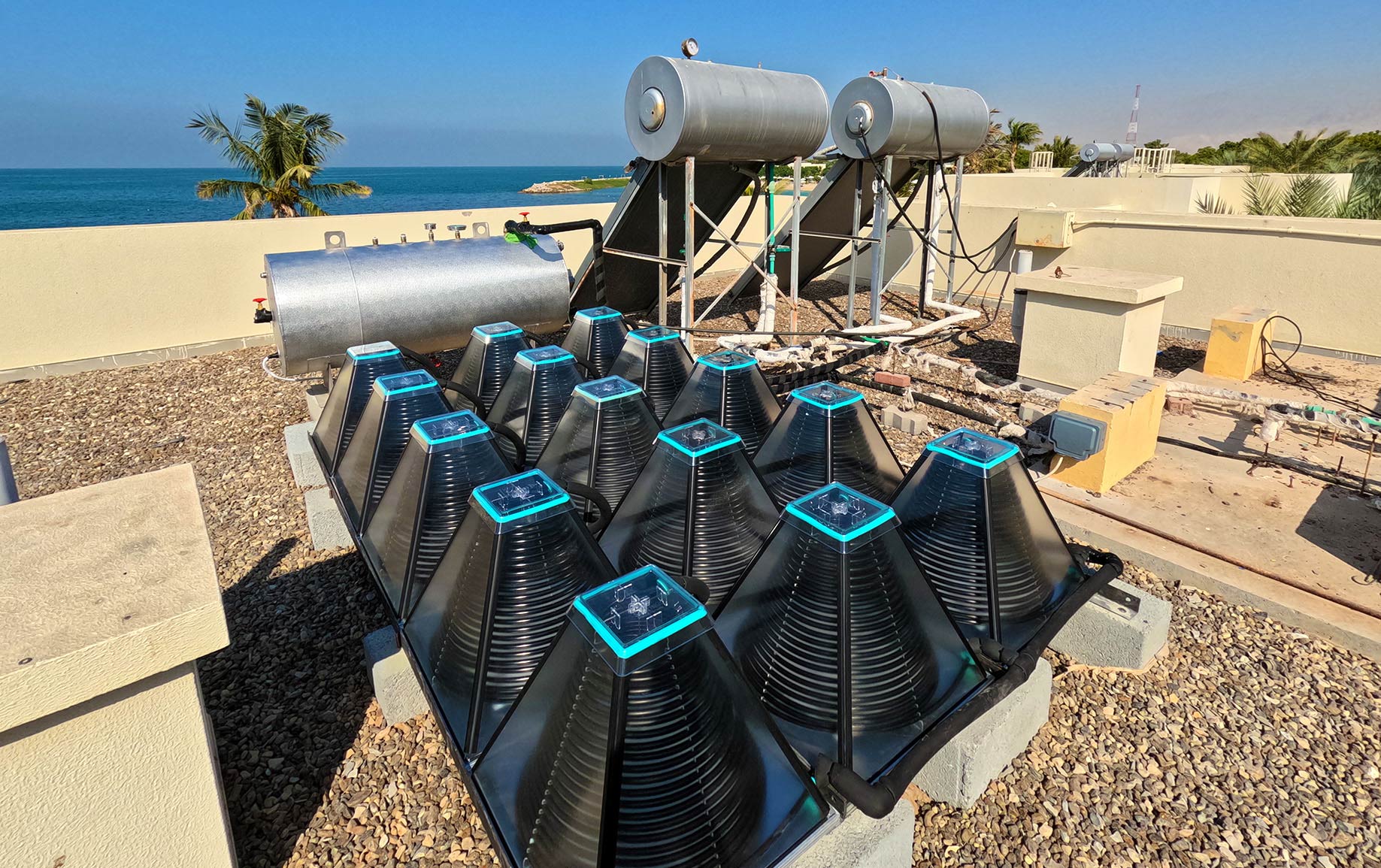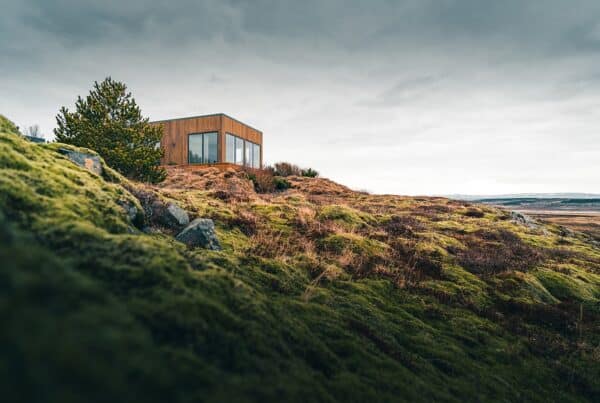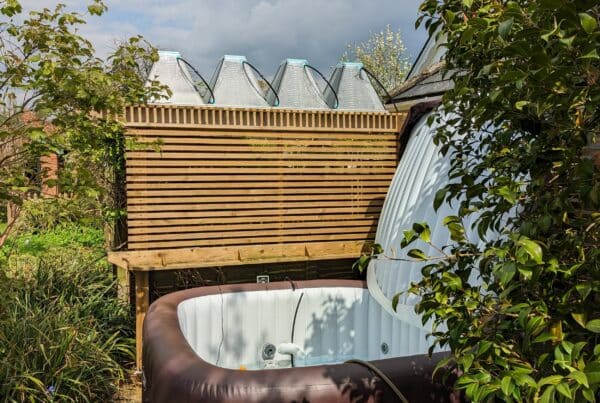In the race toward net zero carbon buildings, every energy decision counts—especially when it comes to heating water. Across the UAE and other hot, sunny climates, solar energy holds the key to significantly reducing emissions and operational costs.
If you’re a property developer, architect, MEP engineer, or green building consultant, now is the time to rethink your approach to hot water systems. In this article, we’ll explore how solar water heaters are driving sustainable energy in net zero buildings—while delivering long-term value.
Why Hot Water Matters in Net Zero Strategies
Heating water is one of the largest contributors to a building’s energy consumption—particularly in hotels, villas, gyms, and residential complexes. Traditional electric water heaters, even when paired with energy-efficient appliances, still rely heavily on grid power often generated from fossil fuels.
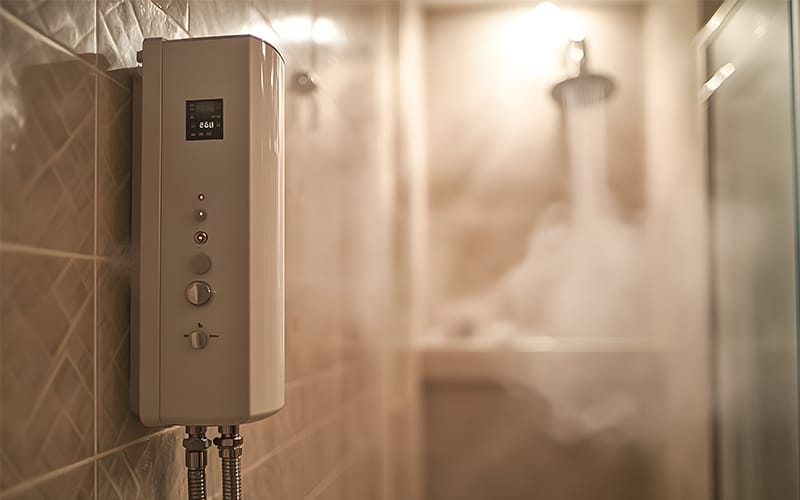
An electric hot shower consumes a lot of energy to heat water
But here’s the opportunity:
- Solar hot water systems can reduce energy use for water heating by up to 70–90%.
- Using solar thermal solutions significantly lowers greenhouse gas emissions.
- Solar heating is an ideal fit for the UAE, where sunlight is abundant year-round.
The result? Immediate energy savings and a much smoother path toward net zero certification, whether through LEED, Estidama, or EDGE.
What Is a Solar Water Heater and How Does It Work?
A solar water heater uses the sun’s energy to heat water through a collector system, typically installed on the building’s roof. Unlike photovoltaic panels that generate electricity, solar thermal collectors directly convert sunlight into heat.
Key components include:
- Solar collectors (e.g., prismatic, flat-plate, or evacuated tube designs)
- Circulation pumps and piping
- Hot water storage tanks
- Control systems (for active type solar hot water systems)
When designed for flat roofs, as is common in UAE buildings, modern solar thermal systems can be low-profile, modular, and visually appealing—something that’s particularly important for developers focused on aesthetics.
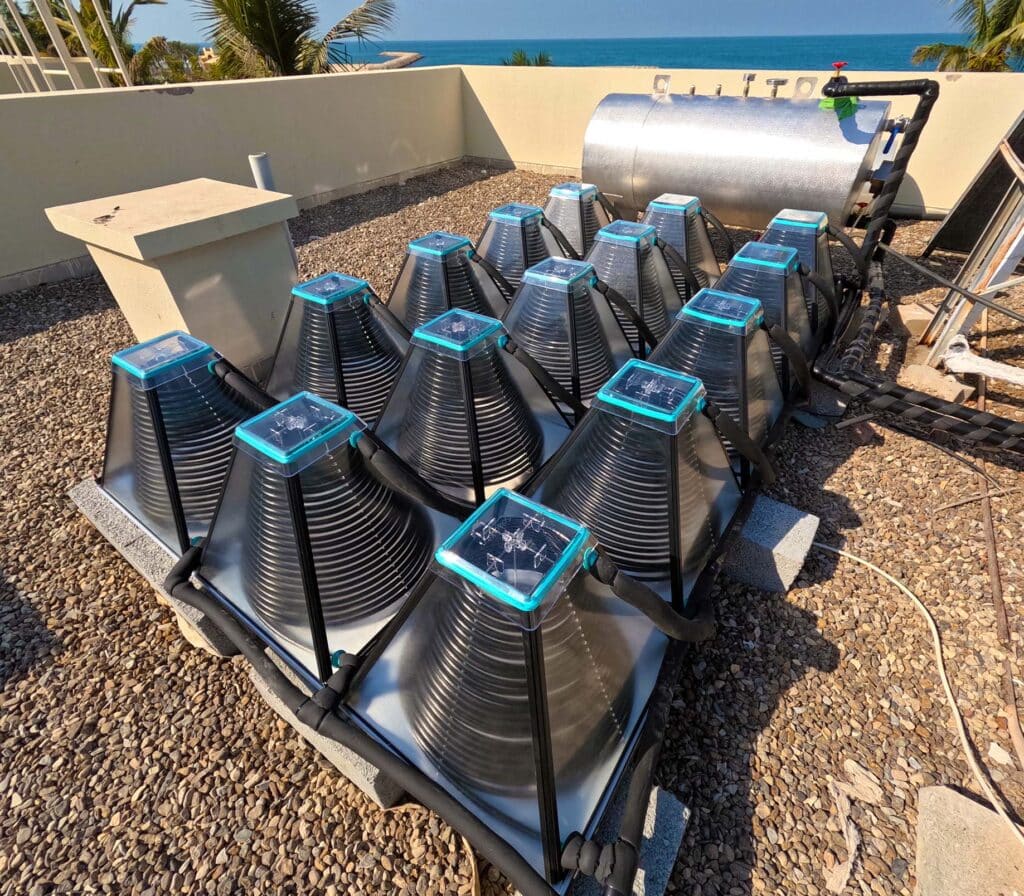
SolarisKit HelioPro solar water heater installed at the Rixos Hotel in the UAE
Benefits of Solar Thermal in Net Zero Projects
Implementing a solar thermal system is one of the most effective ways to reduce the carbon footprint of a building without sacrificing performance or comfort.
Top advantages include:
- Lower Energy Costs: Reduce electricity bills significantly, especially in commercial and residential buildings with high hot water demand.
- Reduced Emissions: Cut carbon output in line with global and local net zero targets.
- LEED and Green Building Credits: Earn valuable sustainability points in compliance schemes like LEED, Estidama, and EDGE.
- Maintenance-Free Operation: Fewer moving parts mean long-term reliability and low maintenance costs.
- Scalability: Ideal for a single villa or an entire hotel complex.
Key Considerations for Solar Water Heater Integration
When evaluating solar hot water systems for your next net zero project, keep the following in mind:
1. System Design for Flat Roofs
Many UAE buildings feature flat concrete roofs. A collector like the SolarisKit HelioFlow, engineered for flat roof installations, offers:
- Modular scalability
- Safe operating temperatures (prevents overheating)
- Compatibility with mineral-rich water
- Fast and simple installation
2. Building Type & Hot Water Demand
Different applications require tailored solutions. For example:
- Hotels and spas need continuous hot water, often at high volumes.
- Villas may require smaller, modular setups.
- Gyms and staff accommodations need reliable, low-maintenance options.
Solar thermal systems can be sized to match all these needs, often integrating seamlessly into existing MEP systems.
3. Compliance with Local Codes
Authorities like DEWA, RAK Municipality, and ADQCC may mandate or incentivize the use of solar water heaters. Choosing pre-approved, compliant systems ensures smoother permitting and eligibility for rebates or sustainability ratings.
Solar Thermal vs Heat Pumps: Which is Better for Net Zero?
Both technologies have a place in sustainable buildings, but they differ in application and carbon offset.
Solar Thermal Systems:
- Lower upfront energy input
- Ideal for sunny climates like the UAE
- No refrigerants or high-GWP gases
- Fast ROI (often 3–5 years)
Heat Pumps:
- Better for less sunny climates
- Require electricity to operate
- Performance can drop in extreme heat
- Higher maintenance and installation complexity
Conclusion? For hot, sunny climates and flat-roof buildings, solar thermal is the superior hot water solution for net zero outcomes.
How Solar Water Heating Supports Green Building Certification
Many green building schemes reward or require renewable hot water systems.
LEED (Leadership in Energy and Environmental Design)
- Points awarded under EA Credit: Renewable Energy Production
- Solar thermal systems reduce total building energy demand
Estidama (Pearl Rating System – UAE Specific)
- Recognises water and energy efficiency
- Encourages renewable energy integration
- Ideal for residential and hospitality projects
EDGE (Excellence in Design for Greater Efficiencies)
- Performance-based certification
- Solar water heaters count toward energy savings targets
Installing a solar water heater can earn up to 15–20% of your building’s certification credits, depending on the program.
Case Study: A Net Zero Hotel Pilot in Ras Al Khaimah
At a coastal hotel in Ras Al Khaimah, SolarisKit installed its HelioFlow solar collectors as part of a net zero pilot. The project achieved:
- 60% reduction in water heating energy use
- Payback in under 4 years
- Seamless integration on flat concrete roofs
- Compliance with RAK Energy Efficiency Framework
The pilot demonstrates that British-engineered innovation can deliver reliable performance in harsh desert conditions—helping property developers meet sustainability targets without compromise.
Why SolarisKit? A Modern Solar Thermal Solution
SolarisKit offers a new approach to solar hot water with its award-winning HelioFlow collector:
- Flat-packed and modular: Easy to transport and install
- Prism-shaped for efficiency: Absorbs solar energy from multiple angles
- Safe temperature regulation: Designed to avoid overheating
- Made for flat roofs: Perfect for UAE villas, hotels, and commercial buildings
Our complete HelioPro system is compatible with hard water, scalable from 200L to 1,000L+ per day, and includes an intelligent pump controller for optimum efficiency.
Steps to Implement Solar Thermal in Your Project
Getting started is easier than you think:
-
Schedule a Consultation
Discuss your project needs and objectives with our engineering team.
-
Receive a Custom System Design
We’ll size and specify the best solar water heater setup for your building.
-
Installation and Training
Work with trained installers or have SolarisKit oversee the commissioning.
-
Monitor and Optimise
Benefit from ongoing support and system optimisation for maximum performance.
The Future Is Flat (Roofed) and Solar-Powered
Whether you’re designing a new villa, hotel, or commercial space, incorporating solar thermal hot water is one of the most cost-effective and impactful steps toward a net zero future. With the right partner and system in place, you’re not just ticking a box—you’re investing in long-term energy security and environmental stewardship.
Ready to Lower Emissions and Energy Costs?
Contact SolarisKit and Book your free consultation today and let’s explore how SolarisKit can support your next net zero project with a solar water heater designed for the UAE and beyond.

